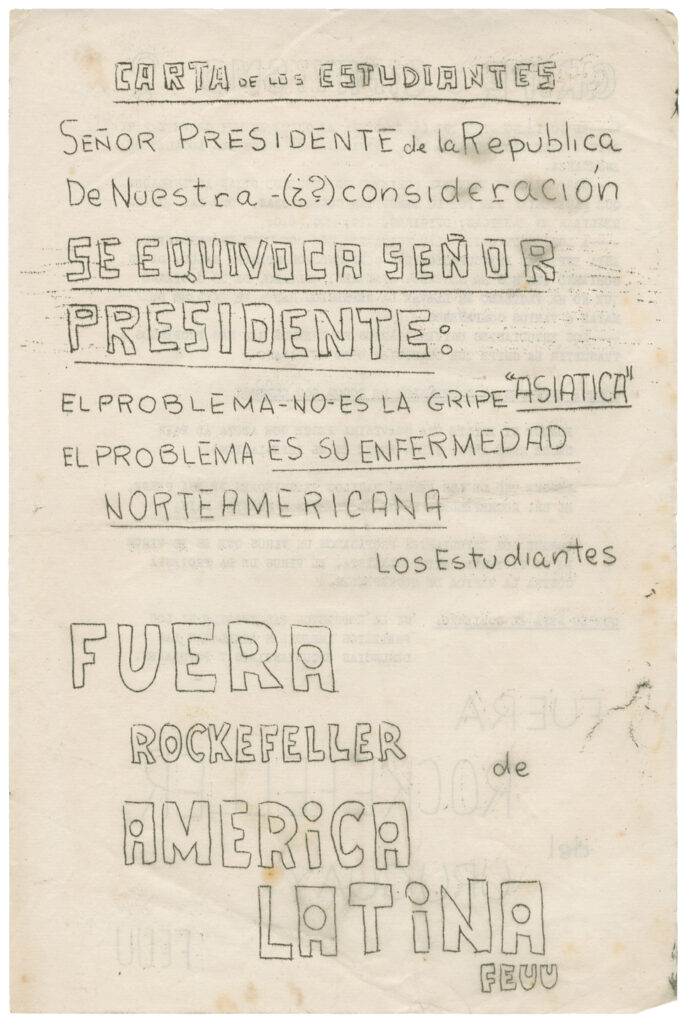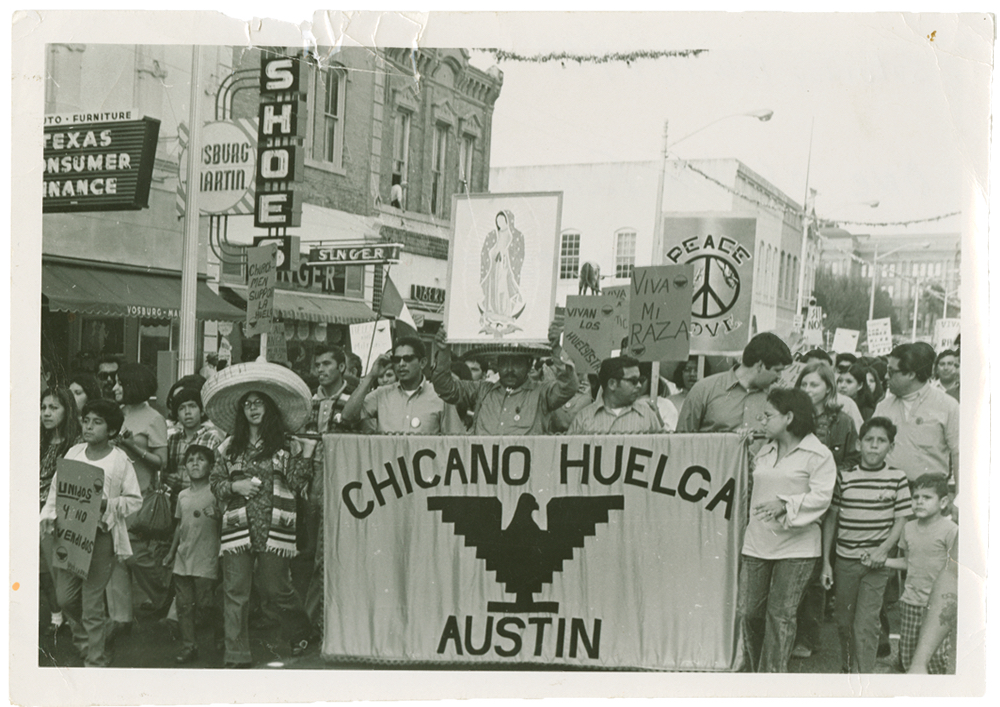BY ALBERT A. PALACIOS
Uruguayan Political Propaganda, 1963–1984
There is a very serious plague that has been scourging through the country for years now, and that plague is imperialism.

Students of Uruguay (FEUU), June 21–27, 1969. Collection of Uruguayan Political Propaganda.
In the summer of 1969, Uruguayan trade unions flooded the streets of Montevideo to protest the visit of New York governor Nelson Rockefeller. Journalists, government employees, and private-sector workers all joined meatpackers, who had been striking for months, to demonstrate against federal policies that severely devalued their living wages in order to protect elite and foreign interests. Distributing flyers by their side was the Federation of University Students of Uruguay, who believed Rockefeller embodied American neo-colonialism: to them, the “Asian” flu, or communism, was not the cause of Uruguayan society’s disintegration—it was the “American disease,” imperialism.
Economy Furniture Company Strike Collection
¡Viva la Raza! !Viva la Huelga!

The following year, on the other side of the equator, striking Mexican-American workers at the Economy Furniture Company marched to the Texas Capitol seeking “simple recognition” as a trade union. An acknowledgment from government officials would give them the leverage they needed to obtain higher wages and better working conditions from their employer. Among them, chanting and marching on Congress Avenue, were University of Texas student activists, who showed “incredible solidarity and strength of purpose” as the strike transformed into the broader Austin Chicano Huelga.
University students marching in solidarity is the common denominator that made these movements a formidable force against the powers that be. Sixteen years of being a Longhorn digging into the Benson’s archives have taught me that our voice as students and academics—a privileged one—can truly amplify the words of those seeking basic rights and equality. Box after box, I have read in awe how students throughout Latin America and the U.S. joined labor and social movements to hoist the disenfranchised on their shoulders so that their voices would cut through the political noise. I can’t help but think that there is truth in the University of Texas slogan: What started here—in the form of historical flyers, photographs, and other ephemera preserved at the Benson—changed, and continues to change, the world.
Albert A. Palacios is LLILAS Benson digital scholarship coordinator.
IN HONOR OF THE CENTENNIAL of the Benson Latin American Collection, staff members submitted short descriptions of some of their favorite items in the collection.
